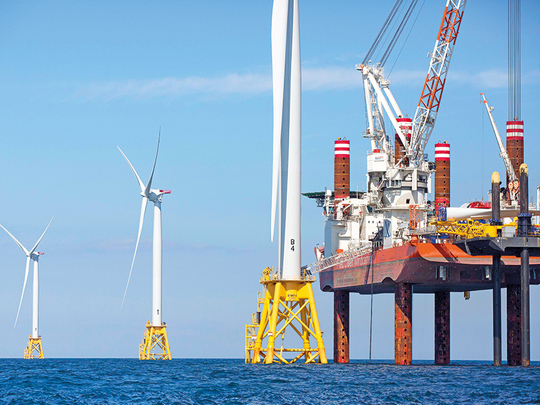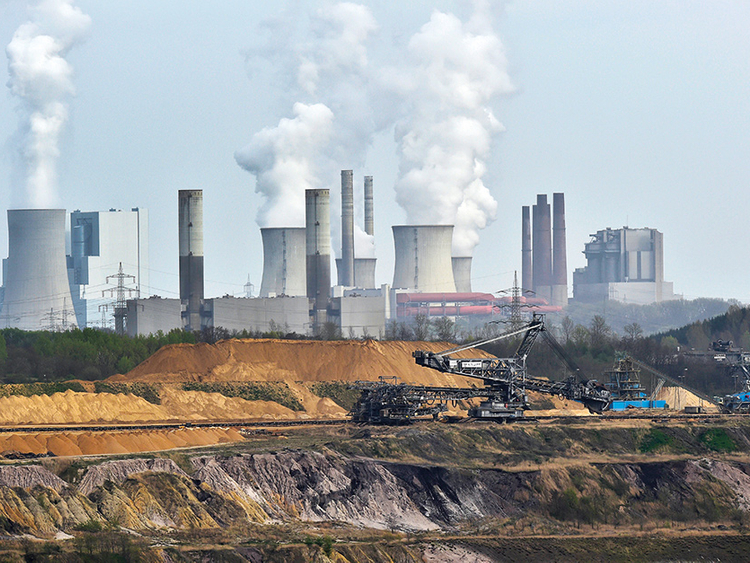
Madrid: There are indications emerging from Washington that President Donald Trump may be willing to soften his position on climate change and reconsider his stated views that the US should not participate in the Paris accord on the environment.
In the US capital, Trump’s advisers on the issue were supposed to meet on Tuesday. That meeting was postponed by White House officials overnight. They did not say when the meeting would be rescheduled.
The meeting was supposed to decide whether to pull the US out of the Paris accord, and Reuters reported the meeting was postponed because of scheduling conflicts.
The postponement has led to speculation that the Trump administration is at least prepared to accept the reality of global warming. And instead of leaving the accord altogether, it may seek to lessen its commitments on reducing greenhouse gases.
The president has committed to making an in-or-out decision by the end of the month to coincide with a meeting of the G7 leaders in Taormina, Italy on May 26 and 27.
Ahead of Tuesday’s originally planned meeting, business groups and some lawmakers called on the White House to remain in the Paris accord, while some conservative policy groups urged the advisers to recommend a withdrawal.
The postponement of the meeting and the possible change of heart was welcomed in Bonn, Germany where representatives of nearly 200 nations that signed the Paris accord in November 2015 are now meeting to review and plan a framework to implement the climate-change pact.
Former US president Barack Obama signed on to the accord, which pledged to cut greenhouse gas emissions and limited an increase in the global temperature to less than 2 degrees Celsius of pre-industrial levels.
In essence, the accord severely restricts the future use of fossil fuels and runs contrary to Trump’s political supporters across the so-called “rust-belt states” where coal and shale oil production has been hit.
The president has also rolled back the powers of the US Environmental Protection Agency, cut federal restrictions on oil and coal production, and has signed executive orders to take back lands designated by the Obama and previous White House administration as US federal parks and marine biospheres.
The Paris accord also commits the so-called “developed nations” to commit and initial $100 billion (Dh367 billion) to a fund to compensate “developing nations” by 2020, and that fund is to be revised regularly.
The Bonn meeting currently underway is charged with putting the regulatory framework in place to ensure the targets of the Paris accord are implemented and met.
There’s also a growing reality at the Bonn meeting to allow the US to reduce its commitments under the terms of the accord signed by Obama.
European Union climate commissioner Miguel Arias Canete noted that 195 countries signed on to Paris accord and “there will be 195 different paths to meeting the Paris goals. So there is room for a new US administration to chart its own path as well.
Patricia Espinosa, the UN official overseeing the climate change portfolio, said it was up to Washington to meet the commitments it gave previously.
“We remain respectful of internal processes,” she said, adding: “It is important to acknowledge that parties may at different moments face some specific situations that they may is to address.”
For others, however, the prospect of altering the deal or allowing the US to water down its commitments is not acceptable.
“Obviously we want the US to stay in the Paris agreement — for its own good as well as for the rest of the world,” said Mohammad Adow, one of 2,000 delegates at the Bonn gathering and a representative from an Ethiopian fieldwork agency. “But this can’t be at any cost. Having the world’s efforts to tackle climate change dictated to by a small group of ideological climate deniers in the world’s richest country is clearly a recipe for disaster.”













